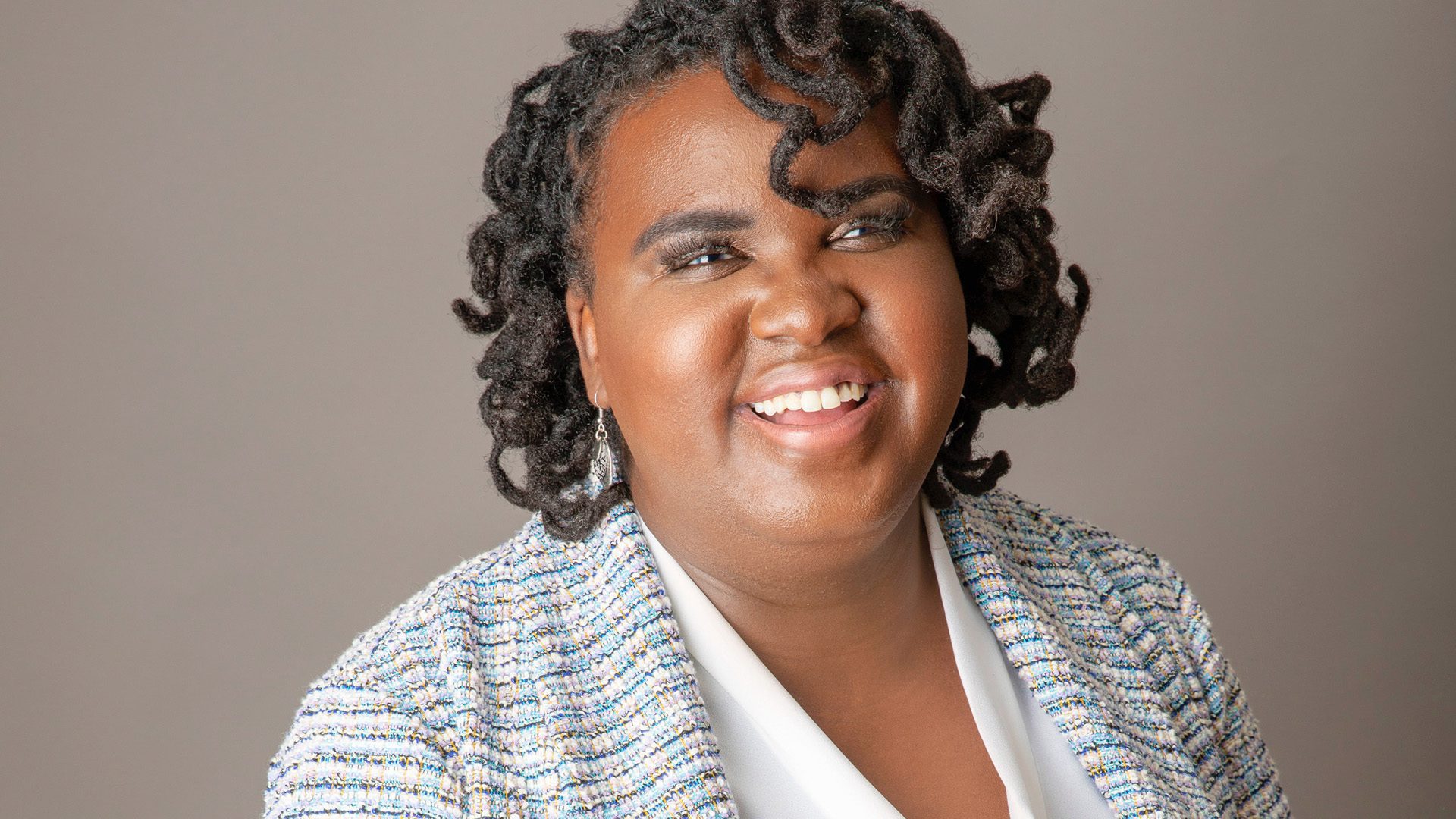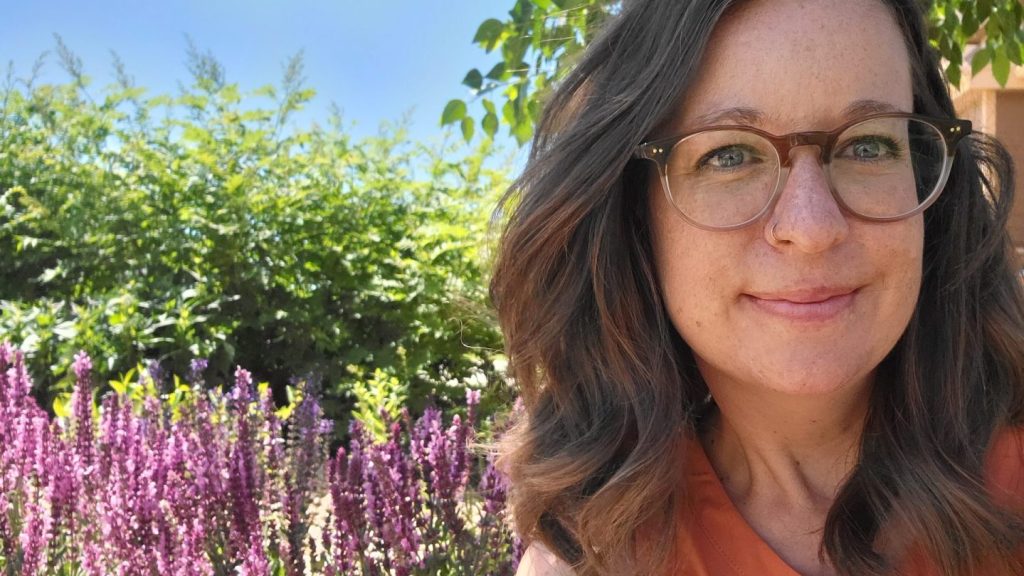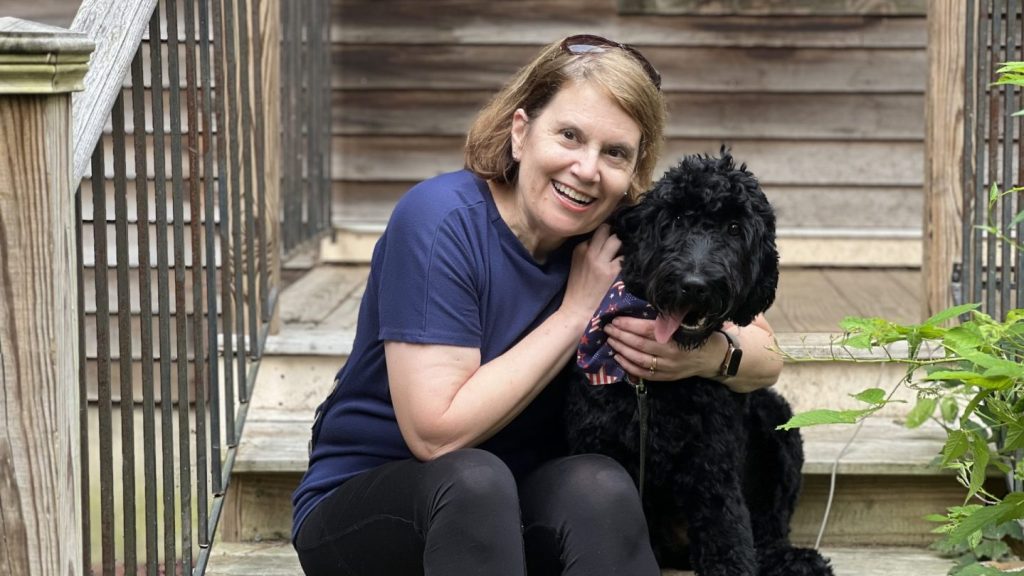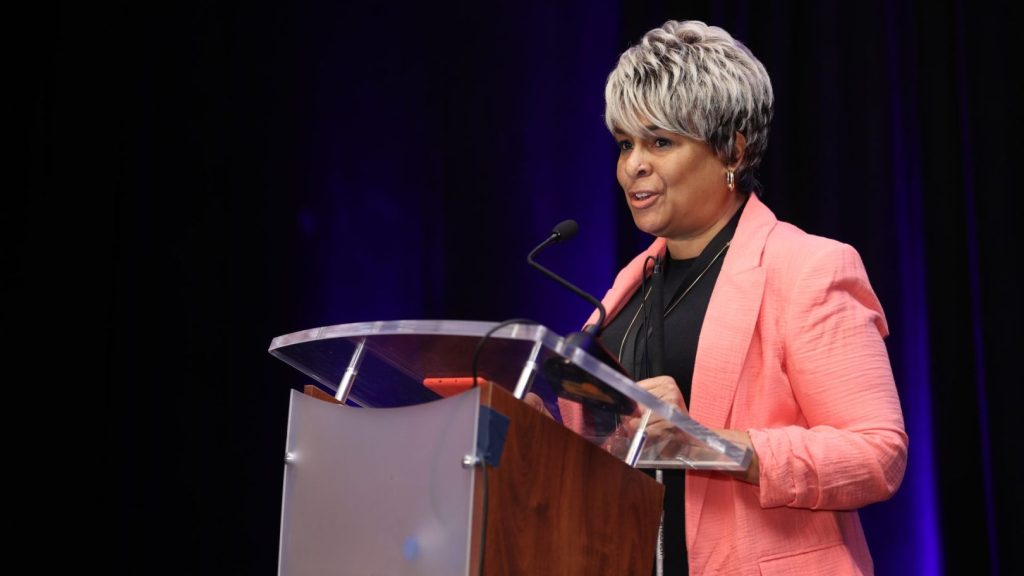Black History Month: An Interview with Denna Lambert

Black History Month is a time to honor the contributions of African Americans to the United States. We spoke with Denna Lambert, a project manager at NASA, to learn more about her story and perspective on this important time of year.
Meet Denna
Denna was born with congenital cataracts and has some remaining vision. Today, she works as the Inclusive Innovation Team Lead for NASA’s Early Stage Innovations and Partnerships. Denna said, “I am a member of our leadership team who makes investments in new technology, concepts, hardware, and software that will be used in future NASA missions. We have over $350 million in grants, contracts, and prizes for small businesses, students, faculty, and even the public who has a great idea. We see ourselves as the front door to NASA’s space technology pipeline.” Outside of her job, Denna is a mom of a 4-year-old son.
Denna’s Perspective on Black History Month
Q: What does Black History Month mean to you?
A: Black History Month, like other commemorative months, I view as a time of reflection and celebration for citizens of these communities that have led movements and worked tirelessly and led to impact and transformative, positive change that benefits everyone. As a society, we must be intentional in making sure that unnecessary barriers or inequitable practices are addressed throughout the year. Collectively, we can ensure our progress and momentum when we recognize the work done across communities throughout the year but especially during months like Black History Month.
Q: What challenges have you faced as a black woman with a visual impairment, and how have you overcome them?
A: I think I have probably faced more challenges as a blind person more so than as a black woman. I think people see my blindness first (i.e., my white cane or guide dog) before they see me as a black woman. This shows up as inaccessible material, people being unsure as to how to interact or assist me or changing their expectations of me based on misconceptions they may have.
Where I do experience challenges with being blind and black is probably finding other black blind men and women growing up. I think the perception of a disability was difficult in the African American community for such a long time. I think it was easier to try to hide a disability or pretend to be more sighted than one may be than to accept the fact that I had limited vision. I think the perception of disability is changing in the black community, but I think that is due to the fact that more black men and women are speaking more openly about it and educating families who look like them.
Q: Looking back, what advice would you give your younger self?
A: Seek community of both sighted and blind friends, mentors, and professionals. When I was an engineering student at the University of Arkansas, I did not know of any other blind electrical engineering professionals. Now that CareerConnect has a wide network of professionals willing to serve as mentors, I think school-age children and young adults should take advantage of this resource.
I believe I ultimately got to where my journey would take me, but I think I wasted a lot of mental and emotional energy on being stuck in feeling alone. If I had more of a village of people who could relate to what I was feeling, I think I wouldn’t have felt so alone for so long.
Q: What lessons have you learned about identity that you want to pass on to others?
A: Embrace your identity. Learn more about yourself and how life has shaped you. It is an ever-evolving process of acceptance and embracing who you are as a beautiful and unique individual.
Q: What are some ways to celebrate Black History Month?
A: Reflect on various aspects of your life to see where you can impact or influence change in a positive way. Observe who is not a part of conversations, important meetings, places where decisions are being made. If it is a category of people, recognize it’s a gap and bring others along with you to address it.
Become more open to other perspectives on life and lived experiences. I have to routinely ask myself if I’m basing my decision or perspective solely on my own experience or am I actually incorporating the helpful perspectives of a diverse group of people. This is especially true for when we realize that the voices, opinions, and perspectives of people with disabilities, specifically blind people, may not be adequately invited, included, and incorporated into spaces where decisions, policies, and programs are designed and implemented.
Learn more about Denna by reading this blog from CareerConnect about the early stages of her career, reading her interview with CareerConnect for National Disability Employment Awareness Month, watching her speak on CareerConversations, and listening to our Change Makers podcast.
Are you or do you know a Change Maker like Denna? Email communications@aph.org to be featured in our podcast or on the APH blog.
Share this article.
Related articles

Meet APH Scholar Suzie Mahon
APH is excited to recognize Suzie Mahon, nominated by EOT, Leslie Bechtel Van Orman, as one of our 2023-2024 APH...

Meet APH Scholar Jeanne Neu
APH is excited to recognize Jeanne Neu, nominated by EOT, Stephanie Bissonette, as one of our 2023-2024 APH Scholars. Jeanne’s...

Women’s History Month: An Interview with Stephanae McCoy
In honor of Women’s History Month, we’re learning about women making a difference who also have a visual impairment. We...
